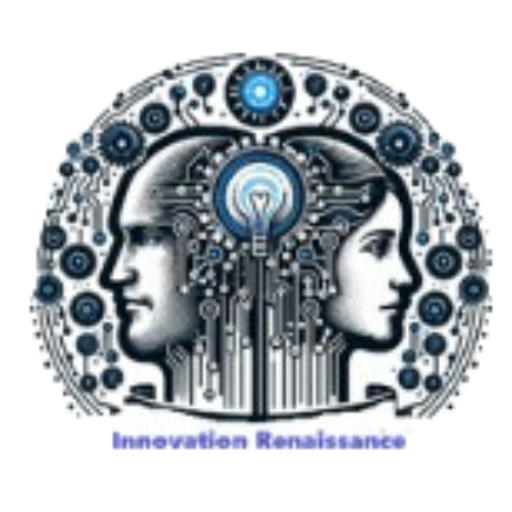Workshop Title: Revolutionizing Aerospace Supply Chains with Machine Learning-Powered Digital Twins
Presenter: Mr. Amit Dubey, : Founder and CEO DataFlux.ai and Data Science Manager, Agilent Technologies, Seattle, WA
Abstract:
In this cutting-edge 1-hour workshop, we delve into the transformative potential of digital twin technology enhanced by machine learning in the aerospace supply chain. As the industry faces unprecedented challenges and opportunities, this session explores how this powerful combination is reshaping supply chain management, offering unparalleled improvements in efficiency, predictive maintenance, and decision-making processes using data science.
Key Topics:
Foundations of Digital Twins in Aerospace: Introducing the concept of digital twins and their specific applications in aerospace, highlighting how they create virtual replicas of physical assets, from aircraft engines to entire supply chain networks.
- Static Digital Twins
- Dynamic Digital Twins
- Interactive Digital Twins
- Process Digital Twins
- Product Digital Twins
Machine Learning Integration: Participants will gain insights into how machine learning algorithms are applied to digital twins, enabling them to analyze vast amounts of real-time and historical data for predictive analytics and continuous learning.
- Practical Applications: Through real-world case studies, I’ll demonstrate how aerospace companies are leveraging this technology for:
- Predictive maintenance to reduce aircraft downtime
- Part Shortage Prediction to prevent assembly delays
- Production optimization and bottleneck identification
- Improved supply chain visibility and stakeholder collaboration
- Cost reduction in development and maintenance phases
Implementation Challenges: Discussion of common hurdles in adopting this technology and strategies to overcome them, including data integration, cybersecurity concerns, and organizational change management.
Framework to Build Digital Twins:
We will discuss What are the phases and a general framework to build problem specific digital twin.
Future Trends:
The workshop will conclude with a look at emerging trends and the future potential of ML-powered digital twins in creating more resilient, adaptive, and innovative aerospace supply chains, such as LLM powered digital twins, voice assisted digital twins.
Who should attend: This workshop is designed for IEEE members, aerospace engineers, supply chain professionals, and technology enthusiasts interested in the intersection of digital twin technology, machine learning, and aerospace supply chain management. Participants will leave with a comprehensive understanding of this technology’s potential and practical insights for implementation in their organizations.
Short introduction to the above key topics:
- Introduction to Digital Twin Technology: Understanding the basics of Digital Twin, its architecture, and how it mirrors physical assets in a virtual environment.
- Role of Machine Learning: Exploring how ML algorithms enhance the capabilities of Digital Twins, enabling predictive analytics and intelligent decision-making.
- Implementation in Aerospace Supply Chain: Examining the specific applications of Digital Twin technology within the aerospace supply chain, including inventory management, logistics optimization, and real-time monitoring.
- Case Studies and Real-World Applications: Analyzing successful implementations of Digital Twin and ML in aerospace companies, highlighting the tangible benefits and improvements in operational efficiency.
- Challenges and Solutions: Discussing the technical and organizational challenges in adopting Digital Twin technology and presenting strategies to overcome these hurdles.
- Future Trends and Innovations: Looking ahead at the potential advancements in Digital Twin technology and ML, and how they will continue to revolutionize the aerospace supply chain.
- Interactive Q&A Session: Providing an opportunity for attendees to engage with experts, ask questions, and discuss specific interests or concerns related to Digital Twin and ML applications.
Tools:
- Building a digital twin proposal for Aerospace company with the above discussed framework
- Sample data from Kaggle or UCI website
- MySQL community edition (open-source license)
- PyCharm or jupyter notebook (free/ open-source community edition)
- Microsoft excel
- BI tool for visualization -per users need
Presenter Bio:
 Mr. Amit Dubey, : Founder and CEO DataFlux.ai and Data Science Manager, Agilent Technologies, Seattle, WA
Mr. Amit Dubey, : Founder and CEO DataFlux.ai and Data Science Manager, Agilent Technologies, Seattle, WA
Experience: 20+ years in Aerospace, Banking, Telecommunication, Management Consulting, E-Commerce, and Digital Marketing
Companies Worked At: Agilent Technologies, Boeing, Airbus, Nortel Networks, Chase Payment Tech, Fiserv, Egon Zehnder
Areas of Expertise: Machine Learning, Deep Learning, Artificial Intelligence, Enterprise Data Management, Digital Transformation, ML ops, Digital Marketing, Business Intelligence
Amit Dubey is a seasoned technology leader with over two decades of experience in the software, data science industry. As the Founder and Chief Technology Officer at Dataflux.ai and Data science manager at Agilent technologies, he has demonstrated expertise in digital transformation, cloud computing, and emerging data science technologies. Amit’s career spans roles at prestigious organizations like Agilent Technologies, Boeing, Fiserv, Accenture, Egon Zehnder, Airbus GMBH, Nortel Networks where he honed his skills in data Science, solution architecture and technology consulting. Beyond his technical prowess, Amit is passionate about mentoring and developing talent, actively participating in various technology communities. He is a frequent speaker at industry events and has contributed to publications on digital innovation. In his spare time, Amit enjoys outdoor activities and is an avid photographer. His unique blend of technical depth, leadership experience, and diverse interests makes him well-suited to engage with the IEEE workshop audience, offering insights that bridge the gap between cutting-edge technology and practical business applications.
